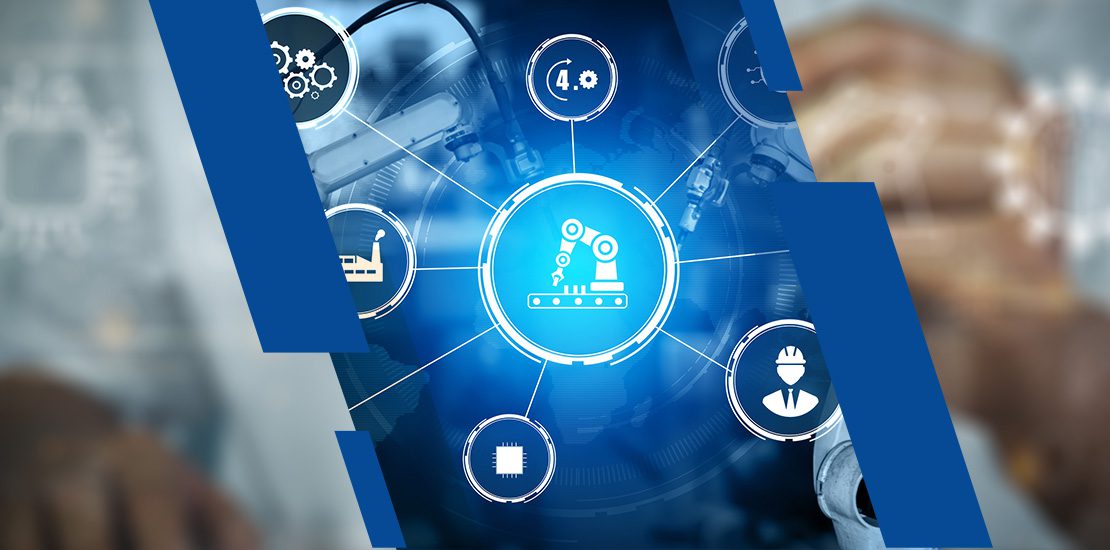October 27th, 2023
Category: Artificial Intelligence,Internet of Things
No Comments
Posted by: Team TA

AI and IoT have become powerful drivers of innovation across industries, revolutionizing the way businesses operate and deliver value. Companies are unlocking transformative opportunities by combining the capabilities of AI’s advanced data analysis and machine learning algorithms with IoT’s real-time data collection and connectivity. These technologies are now commonly utilized in various industries, such as robotics, healthcare, online commerce, and cloud computing, which are crucial elements of the rapidly evolving digital landscape.
How are AI and IoT transforming businesses?
The combination of IoT and AI in business offers remarkable advantages, driving growth and efficiency. According to a report by McKinsey, companies that embrace both IoT and AI technologies can achieve an increase in their operating margins by up to 50%. By leveraging IoT devices to collect real-time data and combining it with AI-powered analytics, businesses gain valuable insights into their operations, customer behaviors, and market trends. According to a study by Deloitte, businesses that deploy AI-driven predictive maintenance can reduce maintenance costs by 25-30% and decrease downtime by 70-75%.
Advantages of AI and IoT in Business
- Data gathering, sharing, and shaping user perceptions
IoT devices, equipped with sensors, collect vast amounts of real-time data from various sources, such as machines, products, and environments. This data is then transmitted to centralized systems or the cloud, where AI algorithms come into play. AI processes and analyzes the data, extracting valuable insights and patterns that businesses can leverage to make informed decisions.
- Enhanced Predictive Maintenance:
Advanced analytics can be used by an AI-enabled IoT platform to predict industrial faults and breakdowns in advance. With this proactive strategy, organizations can plan and take necessary steps in advance to minimize disruptions to their operations. For example, General Electric (GE) utilizes IoT sensors in its aircraft engines to monitor performance in real-time. This has resulted in a 25% reduction in maintenance costs and a 15% decrease in unplanned maintenance.
- Strengthening Security Measures and Workplace Safety
With the increasing volume of data generated by IoT devices, AI-driven cybersecurity solutions will become more sophisticated, detecting, and mitigating potential threats in real-time. AI algorithms can analyze patterns in network traffic and user behavior, identifying anomalies that may indicate cyberattacks or unauthorized access. In construction and mining industries, IoT wearables are used to monitor worker’s health and safety conditions. AI algorithms analyze this data in real time to detect potential hazards and alert workers and supervisors. Studies have shown a 25% reduction in workplace accidents due to the implementation of such technologies, according to the National Institute for Occupational Safety and Health (NIOSH).
- Improved Operational Effectiveness
Business AI and IoT are crucial for streamlining overall operational procedures and producing accurate predictions, which boosts operating efficiency. Investing in IoT and AI is essential in today’s technologically advanced world because it identifies time-wasting and redundant operations.
AI and IoT Use Cases in Businesses
- Smart Cities
The combination of AI and IoT can turn cities into smart ecosystems, enabling efficient traffic management, waste disposal, energy usage, and public safety measures. This transformation can enhance the quality of life for residents while promoting sustainability. For example, the city of Barcelona is using AI to monitor energy consumption in buildings and provide feedback to residents on how to reduce their energy use. This has helped to reduce energy consumption by up to 10%.
- Healthcare
The Internet of Things, powered by AI, is used in commercial applications to collect data and provide preventive measures for patients. This technology enables early detection of medical issues and helps with drug administration. It gathers information from various sources such as internet-connected medical equipment, health records, activity trackers, mobile healthcare apps, and more.
The University of California, San Francisco (UCSF) Medical Center implemented an IoT-based patient monitoring system integrated with AI analytics. This system continuously collects patient vitals and uses AI to detect early warning signs of deteriorating health. It has helped reduce mortality rates by 30% in the ICU, according to UCSF.
- Robotics
IoT enables robots to connect and share data with other devices and systems, facilitating seamless collaboration and coordination. Sensors integrated into robots enable them to perceive their environment, gather real-time data, and adapt to changes autonomously. AI-powered algorithms process this data, enabling robots to make intelligent decisions, learn from experiences, and improve their performance over time. In manufacturing, AI-driven robotic arms equipped with IoT sensors can optimize production lines by detecting anomalies, reducing errors, and maximizing productivity. ABB’s YuMi is a collaborative robot that is designed to work safely alongside humans. YuMi is powered by AI and IoT, which allows it to learn and adapt to new tasks.
- Smart Retail
In retail, IoT sensors track customer behavior and inventory levels, while AI-powered analytics process this data to offer personalized recommendations, optimize inventory management, and create more engaging shopping experiences. For instance, Walmart is using AI to predict customer demand and optimize its inventory levels. This has helped Walmart to reduce its out-of-stock rate by 10%.
- Self-driving vehicles
Combining AI algorithms with IoT sensors in vehicles allows for self-driving capabilities. AI processes data from cameras, LiDAR, radar, and other sensors to interpret the surroundings, enabling autonomous navigation and enhancing road safety. AI and IoT play a powerful role in the development of future technologies, such as self-driving cars.
On a Final Note…
As technology continues to advance, AI algorithms will become more sophisticated, enabling deeper insights and more accurate predictions from the vast amounts of data collected by IoT devices. The seamless integration of AI and IoT will enable businesses to make smarter, data-driven decisions, optimize processes, and uncover hidden patterns in complex data sets. This combination will foster a new era of automation, efficiency, and innovation, transforming industries ranging from manufacturing and healthcare to retail and agriculture.
Our IoT and AI tech experts at Travancore Analytics can help businesses automate processes, streamline operations, improve decision-making, and improve customer experiences.